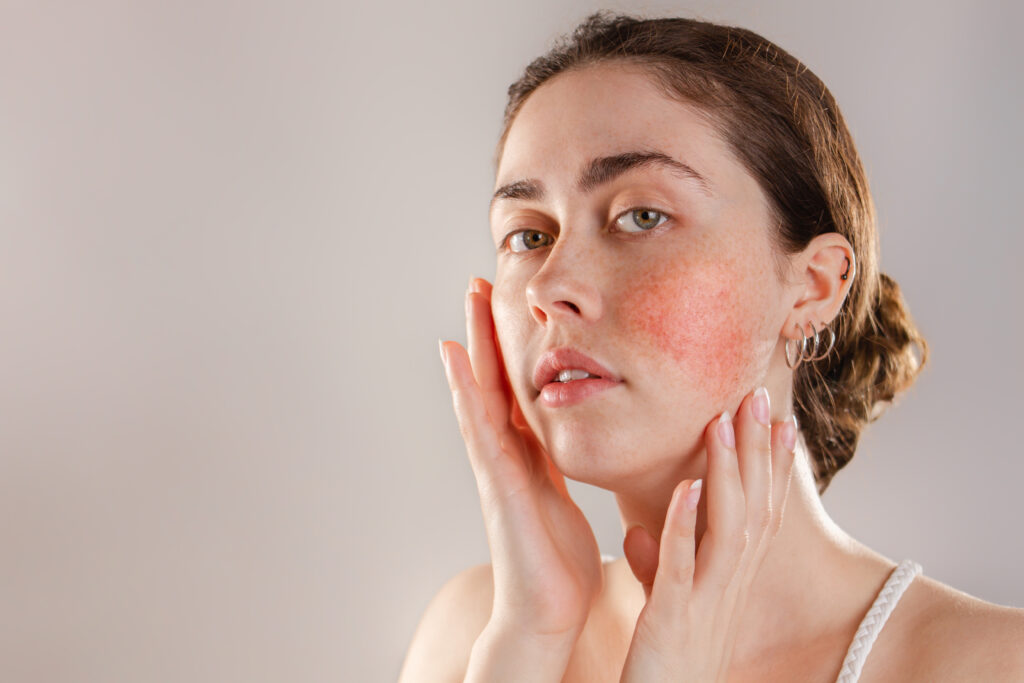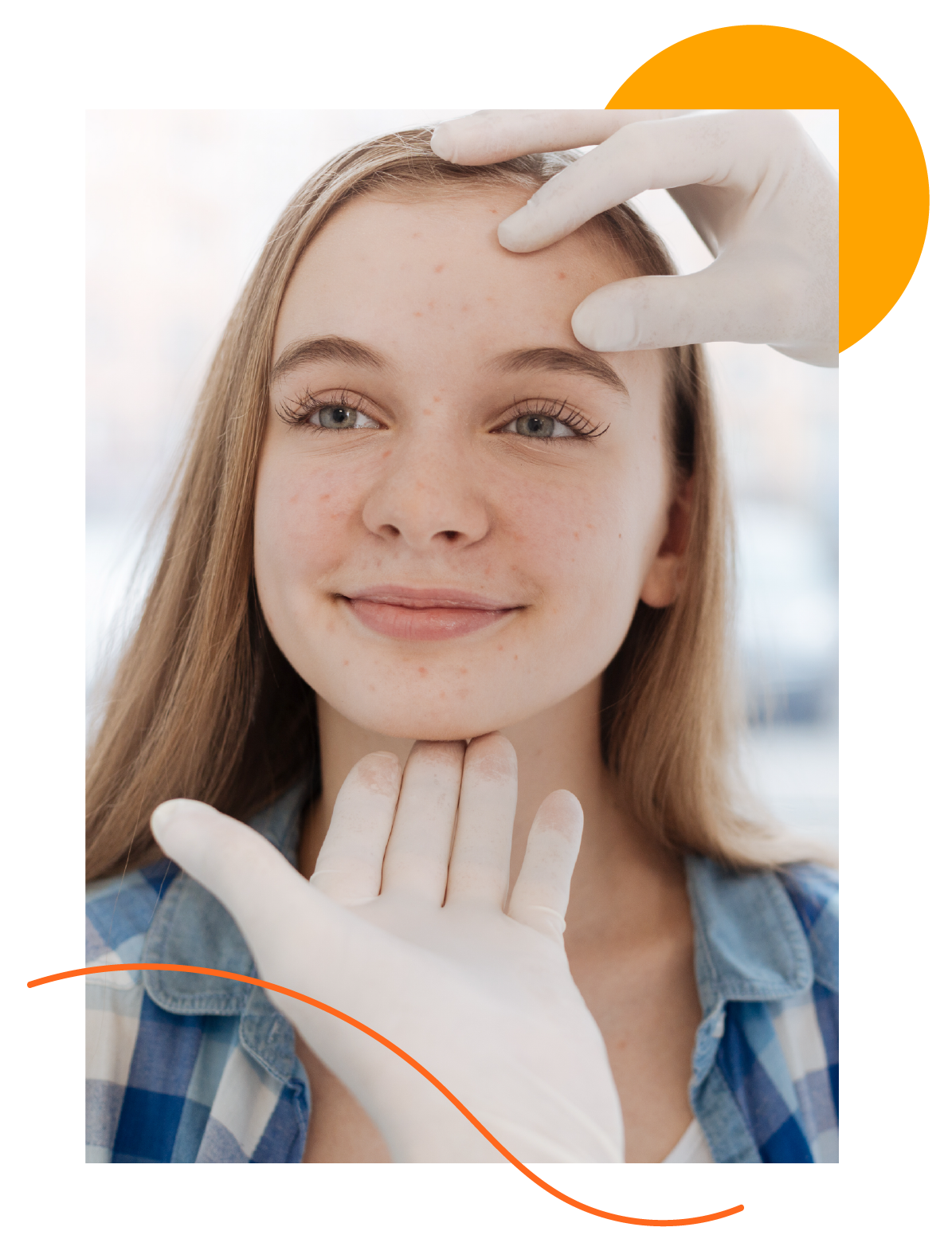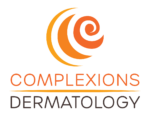ROSACEA
Offering Individualized Skin Treatment Plans
Rosacea is a common skin condition that primarily affects the face. It is an inflammatory disorder of the skin that causes redness and swelling in the small blood vessels of the cheeks, nose, forehead and chin. The small blood vessels may become more visible over time and can eventually cause small, red bumps on the skin that appear similar to acne. Rosacea symptoms usually worsen during a flare and then there are times of dormancy. Patients may become familiar with lifestyle or environmental triggers that can exacerbate symptoms like exposure to the sun, stress, hot drinks such as coffee and tea, alcohol and skincare products. While rosacea may occur in anyone, research shows that middle-aged women with fair complexions as well as people with a family history are more susceptible.
Know Your Rosacea Triggers
The key to managing rosacea is knowing your personal triggers and adjusting your lifestyle or behavior to avoid activities that may potentiate a flare. While the true cause is unknown, it tends to run in families, indicating a strong genetic component and generally affects people over the age of 30. Rosacea is not caused by poor hygiene. There are a wide variety of triggers that can exacerbate it, such as:
- Warm or hot drinks
- Spicy foods
- Alcoholic beverages and red wine
- Extreme temperatures
- Exposure to wind
- Sunlight exposure
- Exercise and sweat
- Cosmetic products
- Medications including blood pressure medications that dilate the blood vessels

Symptoms of Rosacea
While nearly 16 million Americans suffer from rosacea symptoms, it may also cause discomfort, pain, burning, itching, and stinging for many people. It is important to know that it can be treated with topical and/or oral medications that can help combat the discomfort of this skin condition. The most common symptoms of rosacea include:
- Flushing – Patients with rosacea tend to appear as though they are blushing or have a flushed appearance after light activity or exercise. Skin that flushes easily can begin in late childhood and may be one of the earliest signs.
- Facial redness – After a trigger, such as a glass of red wine, facial redness may appear. The skin may even take on a purplish tone and appear bumpy and uneven. Small blood vessels on the nose or cheeks can become visible, and the skin may be warm to the touch and tender.
- Swollen red bumps and/or pimples – Small bumps may develop that may or may not be filled with pus or fluid, often mistaken as acne. These bumps can cause soreness and tenderness in the face.
- Noticeable blood vessels – Some patients may have small but noticeable blood vessels that appear due to the skin disorder.
- Eye problems – In addition to skin flares, patients can experience ocular rosacea, which causes dry, irritated eyes and swelling of the eyelids.
- Enlargement of the nose – When left untreated and over time, rosacea can cause the skin on the nose to appear thickened, giving the nose an enlarged appearance. This enlargement tends to affect more men than women and is due to the chronically swollen blood vessels in the skin of the nose.
If you are experiencing rosacea symptoms and especially discomfort or pain associated with flares, call us at our Danville location (434) 792-0423 or our Colonial Heights location (804) 805-8442 to schedule your consultation at Complexions Dermatology. A dermatologist specializes in conditions of the skin and is trained to make an accurate diagnosis and provide a treatment plan that can help you manage your condition.
Diagnosing and Treating Rosacea
At Complexions Dermatology, located in Danville and Colonial Heights, Virginia, we specialize in making accurate diagnoses and offering effective treatment plans for skin conditions like rosacea. During your consultation, we will gather information about your family history, perform a thorough examination of your skin and discuss the symptoms you have to help us make an accurate diagnosis. We may offer additional tests to rule out other diseases that can cause similar symptoms. Once we have determined the correct diagnosis, we will work with you to develop a treatment plan that includes avoiding triggers and managing your symptoms.
The providers at Complexions Dermatology stay abreast of advanced treatment options for conditions of the skin. Most importantly, we will develop an individualized treatment plan designed to address your unique and personal needs. Our goal is to evaluate your skin and prescribe an effective treatment plan that will help you manage rosacea symptoms. An important part of managing symptoms includes avoiding triggers, and we will work together to determine your specific triggers. Treatment may include oral and topical medications as well as a gentle skincare regimen with mild moisturizers. Sometimes, modifying certain activities can help reduce flares, such as:
- Applying a safe and gentle sunscreen with SPF, wearing a wide-brimmed hat to keep the sun off of the face and avoid the peak hours of sunlight.
- Avoiding triggers such as spicy foods or alcoholic beverages
- Adopting a mild skincare regimen that avoids harsh soaps, abrasive washcloths or cleansers
- Wearing safe and dermatologist recommended cosmetic products to reduce the appearance of redness
At Complexions Dermatology, we will work with you in managing the symptoms of rosacea and, together, we can successfully prevent flares. Call us today to learn more about treatment for rosacea at our Danville location (434) 792-0423 or our Colonial Heights location (804) 805-8442.




